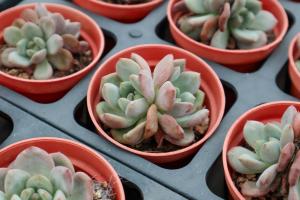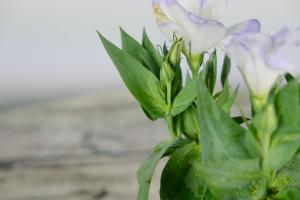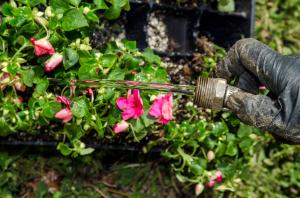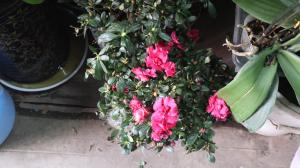Is It Bad to Keep Plants in Plastic Pots?
Plastic pots are a popular choice for gardeners because they are lightweight, affordable, and easy to find. However, some people worry that keeping plants in plastic pots can be harmful. In this article, we'll take a closer look at the advantages and disadvantages of using plastic pots for your plants.
The Pros of Using Plastic Pots
One of the main advantages of using plastic pots is that they are lightweight and easy to move around. This is especially useful if you like to rearrange your plants frequently. Plastic pots are also affordable, and you can find them in many different sizes and colors. Additionally, plastic pots are durable and can withstand rough handling without breaking.
The Cons of Using Plastic Pots
On the other hand, there are some disadvantages to using plastic pots. One of the biggest concerns is that plastic can create a container that is not breathable. This can lead to poor drainage and ultimately root rot. Additionally, plastic pots can release chemicals that are harmful to plants over time.
A Look at Root Health
One of the most important considerations when it comes to using plastic pots is the health of your plant's roots. Plastic pots can trap moisture, which can lead to root rot. This is especially true if the pot doesn't have good drainage. Additionally, plastic pots can create a buildup of salts that can damage roots.
Alternatives to Plastic Pots
If you're concerned about the effects of plastic pots on your plants, there are several alternatives you can choose from. One popular option is using clay pots, which are breathable and allow for good drainage. Another option is using fabric pots, which are made from breathable materials like felt and allow for excellent drainage. You can also opt for biodegradable pots made from materials like coconut coir and rice hulls.
Taking Care of Your Plastic Pots
If you do decide to use plastic pots, there are some steps you can take to ensure your plants stay healthy. First, make sure your pot has good drainage holes. Avoid overwatering your plants, and always make sure the soil has a chance to dry out between waterings. Additionally, consider adding a layer of gravel or rocks to the bottom of your pot to help with drainage.
The Bottom Line
In the end, whether plastic pots are a good choice for your plants comes down to personal preference and the needs of your specific plants. If you do choose to use plastic pots, just make sure to take care of them properly and monitor your plants for any signs of stress or damage. By doing so, you can enjoy the benefits of plastic pots while avoiding any potential downsides.

 how many times do yo...
how many times do yo... how many planted tre...
how many planted tre... how many pine trees ...
how many pine trees ... how many pecan trees...
how many pecan trees... how many plants comp...
how many plants comp... how many plants can ...
how many plants can ... how many plants and ...
how many plants and ... how many pepper plan...
how many pepper plan...































